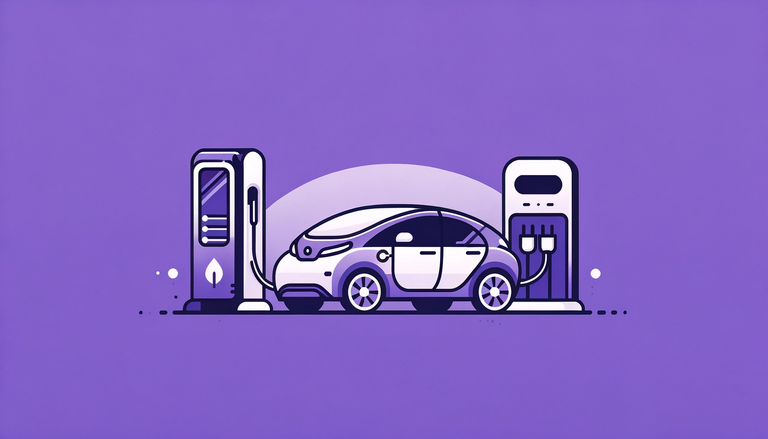Commercial clean vehicle credit for small businesses

The transportation sector is the US's largest source of greenhouse gas emissions. Transforming your small business operations into more eco-friendly practices is crucial to decreasing the nation's carbon emissions and reducing your business tax bill!
Starting January 1, 2023, businesses and organizations can purchase new EVs and FCEVs and receive commercial clean vehicle credit. If your business transports goods or leases vehicles, you can take advantage of the credit and invest in an upgrade for your vehicle fleet.
In this article, we’ll explain the commercial clean vehicle tax credit and its requirements. You will also learn about other federal clean energy tax incentives.
Tax credits and deductions are essential tools for business tax planning. They can help your business save thousands of dollars on taxes the next tax year and in the long term.
Book a consultation with a tax advisor to develop a tax plan for your business
Book tax consultationWhat is the commercial clean vehicle tax credit?
The commercial clean vehicle credit is a tax credit for new plug-in hybrids, fuel cell electric vehicles, or fully electric vehicles. These vehicles must be purchased in 2023 or after.
The credit is not refundable, meaning you can only get back what you owe in taxes. However, businesses can carry it over as a general credit.
The credit for commercial clean vehicles can lower your business taxes but not reduce your taxable income.
The highest credit amount is $7,500 for qualified vehicles with gross weight ratings (GVWRs) under 14,000 pounds. For all other vehicles, the maximum credit is $40,000.
Hybrid vehicles may be eligible for a credit of either $7,500 or $40,000, depending on their weight. The credit can also be 15% of the vehicle's basis or the incremental cost compared to a gasoline-powered vehicle.
You can receive a 15% credit for purchasing a plug-in hybrid electric vehicle, a 30% credit for buying a fully electric or fuel cell electric vehicle, or a credit based on the vehicle's incremental cost compared to an equivalent internal combustion engine vehicle.
You can only claim the credit for qualified clean commercial vehicles once per vehicle. However, your business can claim unlimited credits. For example, you can claim ten tax credits by purchasing ten clean cars for commercial use.
Who can apply for a commercial clean vehicle tax credit?
Businesses and tax-exempt organizations can claim the commercial clean vehicle tax credit.
For-profit entities claim the credit on their income tax returns, reflecting it as a non-refundable credit. Not-for-profit entities can opt for a direct pay election.
Which vehicles qualify for the commercial clean vehicle credit?
The general requirements for vehicles to qualify for the commercial vehicle tax credit are the following:
- be a new vehicle
- be subject to a depreciation allowance (with exceptions)
- be produced by a qualified manufacturer
- be for business use or lease and not for resale
- be used primarily in the United States
- undergo final assembly in North America
- be either a motor vehicle manufactured primarily for use on public roads or mobile machinery
Plug-in electric vehicles under 14,000 lbs GVWR must have a battery capacity of at least 7 kWh. Plug-in electric vehicles over 14,000 lbs GVWR must have a minimum battery capacity of 15 kWh. Fuel cell motor vehicles must meet the requirements of IRC 30B(b)(3)(A) and (B).
Starting on January 1, 2024, you must initiate and approve clean vehicle tax credits at the time of sale. The dealer must submit a ‘time of sale report’ to IRS Energy Credits Online. Learn more in the IRS publication 5900.
Other clean vehicle tax credits
The commercial vehicle tax credit is one of three clean vehicle credits included in the Inflation Reduction Act (IRA) of 2022. These credits aim to boost demand for eco-friendly means of transport by reducing their purchase prices.
Clean vehicle tax credit
Clean vehicle tax credit is up to $7,500 for qualifying new clean vehicles placed in service by the end of 2032.
This credit consists of two parts: the critical mineral amount and the battery component amount, both totaling $3,750. It is effective for vehicles in service after April 18, 2023.
Criteria to qualify include sourcing critical minerals domestically, manufacturing battery components in North America, meeting MSRP caps, GVWR limits, battery capacity requirements, and final assembly in North America.
MAGIs must not exceed specified thresholds:
- $150,000 for single filers
- $300,000 for married couples
- $225,000 for heads of household
Used clean vehicle tax credit
If you purchase a used clean vehicle, you may be eligible for another tax credit. The credit can be up to 30% of the sales price; the maximum credit you can receive is $4,000.
Vehicles must be purchased before 2033 and meet the following requirements:
- be bought for $25,000 or less from a licensed dealer
- have a GVWR rating under 14,000 pounds and a minimum battery capacity of 7 kWh
- be at least two years old at the time of purchase
The seller must provide you with the necessary paperwork for the sale.
Eligibility is based on MAGIs at or below:
- $75,000 for single filers
- $150,000 for married couples
- $112,500 for heads of household
Want to learn more about clean energy tax incentives in the US? Schedule a free discovery call with a tax professional.
Disclaimer: This article is for informational purposes only and does not constitute legal or tax advice. Always consult with a tax professional regarding your specific case.

Ines Zemelman, EA, is the founder and president of TFX, specializing in US corporate, international, and expatriate taxation. With over 30 years of experience, she holds a degree in accounting and an MBA in taxation. See more